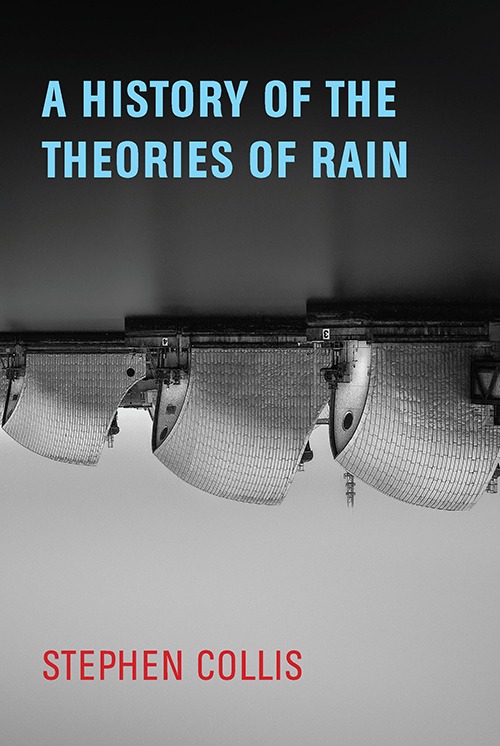The latest publication from Stephen Collis, A History of the Theories of Rain, continues the poet’s commitment to a climate poetics capable of global and personal simultaneously. “each mouth a poem / we did not taste / shouting venom at the state / of the world” the poet writes mid-way through the volume (27). When Collis isn’t following a stream-of-consciousness mode that captures the distinct raw energy of observation, he’s rigidly and powerfully constructing form-intensive lyrics that demand to be reread for maximum effect. One minimalist example found in the book’s second section, “Sketch of a Poem I Will Not Have Written,” reads: “How to dwell (and I mean this / in a world that / shaped as it is by hate and blindness / (love and / blindness / runs right over the rim?” (35).
The works here cover a lot of time and space, but as with his former books, Collis’s eyes and ears are dedicated to the finite of the contemporary, capturing what is ever fleeting; and also, Collis foils news and events with the ongoing emotional transformations that result, including the distinct laments and sorrows faced by decaying ecologies. While the BC-based poet may feel distinctly Canadian in tone and pacing, his poetry here continues to carry his unique and uniquely universal voice, combining fresh language with lyrical comfort of decades-past.
The book contains a variety of language across its four sections, but my favorite section, which resonated with me the most, was the final, which the book is named after. “A History of the Theories of Rain” reminded me of my own book, Of Spray and Mist, and so much more. Obviously, this has to do with its centralization of water: “Water is temporary importance / celestial signal of life precipitate on fluid surface” (83). But it is also the brutal truth at its own liquid core that resonates with me. The section is filled with powerful phrases that left me reeling in my seat: “I have dreamed of these / little worlds / droplets / the pain of trying / to change everything” (93). The book really is one that reflects upon and inspires action throughout observation. I can’t recommend it enough.
